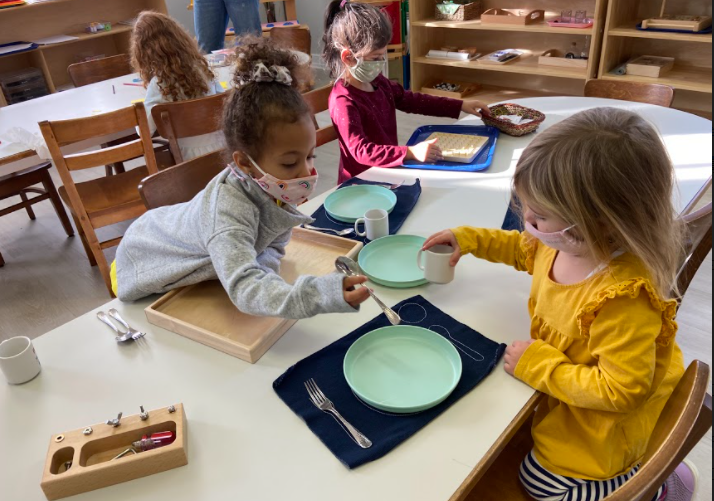
The Montessori Approach to Cultivating Social Skills
Montessori education has long been recognized for its holistic approach to learning, emphasizing not only academic growth but also the development of essential life skills. One crucial aspect of this holistic philosophy is the cultivation of social skills. In the Montessori environment, social skills are not just taught; they are woven into the fabric of the entire educational experience.
Foundations of Social Skills in Montessori Education
At the core of Montessori philosophy is the belief that children are inherently social beings. The classroom is not just a space for individual academic pursuits; it is a community where children learn to interact, collaborate, and build relationships. From the early years, Montessori classrooms provide a foundation for social development by fostering a sense of community and shared responsibility among students.
Mixed-Age Groupings and Collaborative Learning
One distinctive feature of Montessori classrooms is the intentional use of mixed-age groupings. This practice creates a social microcosm where older students naturally take on mentorship roles, and younger students benefit from observing and learning from their peers. Collaboration is encouraged, and the dynamic interactions within these diverse groups contribute significantly to the development of effective communication and interpersonal skills.
Freedom within Structure for Social Growth
Montessori classrooms provide children with a carefully prepared environment that allows for freedom within limits. This balance between freedom and structure creates a space where social interactions can flourish. Students learn to make choices, negotiate with peers, and navigate social situations with guidance from teachers who act as facilitators in the learning process.
Conflict Resolution and Emotional Intelligence
Montessori education places a strong emphasis on the development of emotional intelligence. Through practical experiences and discussions, students learn to recognize and express their emotions. Additionally, the Montessori approach equips children with valuable conflict resolution skills, teaching them how to navigate disagreements respectfully and find peaceful resolutions.
Practical Life Activities and Social Grace and Courtesy
Practical Life activities in Montessori education go beyond simple life skills; they also serve as opportunities for social development. Children engage in tasks that require cooperation, turn-taking, and consideration for others. Moreover, the curriculum includes lessons on Social Grace and Courtesy, instilling in students the importance of polite behavior, respect, and empathy in social interactions.
Montessori Social Skills Program: A Holistic Approach
To further enhance the focus on social skills, many Montessori schools implement specialized programs. These programs integrate social skill development seamlessly into the curriculum, ensuring that it becomes an integral part of the child’s overall education. The Montessori Social Skills program emphasizes communication, cooperation, and interpersonal understanding.
Beyond the Classroom: Montessori Social Skills in Everyday Life
The beauty of Montessori social skills lies in their applicability beyond the classroom. The principles and values instilled in children through Montessori education extend into their daily lives, positively influencing their interactions with family, friends, and the broader community.
Cultivating Lifelong Social Competence
As children progress through the Montessori system, they not only acquire academic knowledge but also develop a strong foundation of social competence. The skills learned in a Montessori environment – communication, collaboration, empathy, and conflict resolution – serve as lifelong assets, preparing students to navigate the complexities of social interactions in the real world.
In conclusion, the Montessori approach to cultivating social skills goes beyond traditional education. It embraces the understanding that academic success is intricately connected to social and emotional well-being. By fostering a supportive community, encouraging collaboration, and integrating social skill development into every aspect of the curriculum, Montessori education equips children with the tools they need for a lifetime of successful and meaningful social interactions.
For more information on Montessori Social Skills, visit www.igaseng.com.




